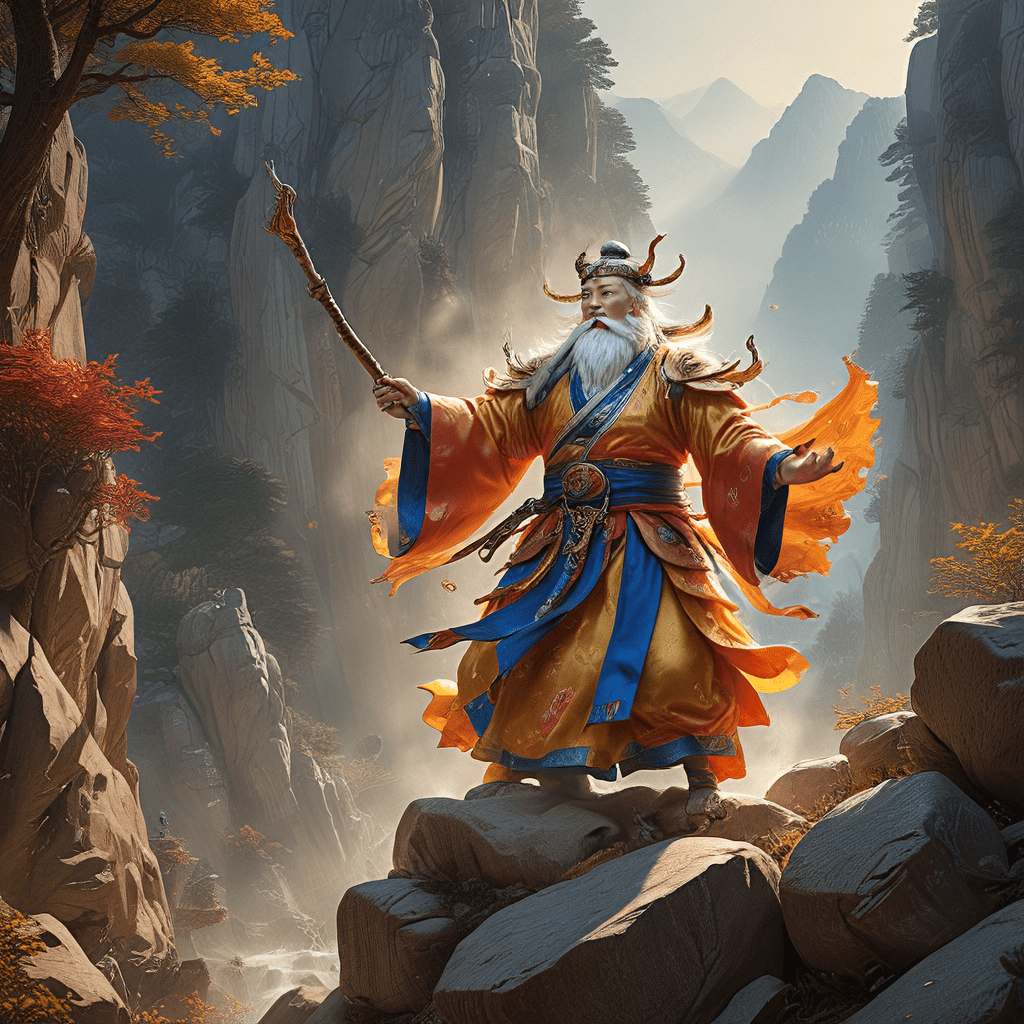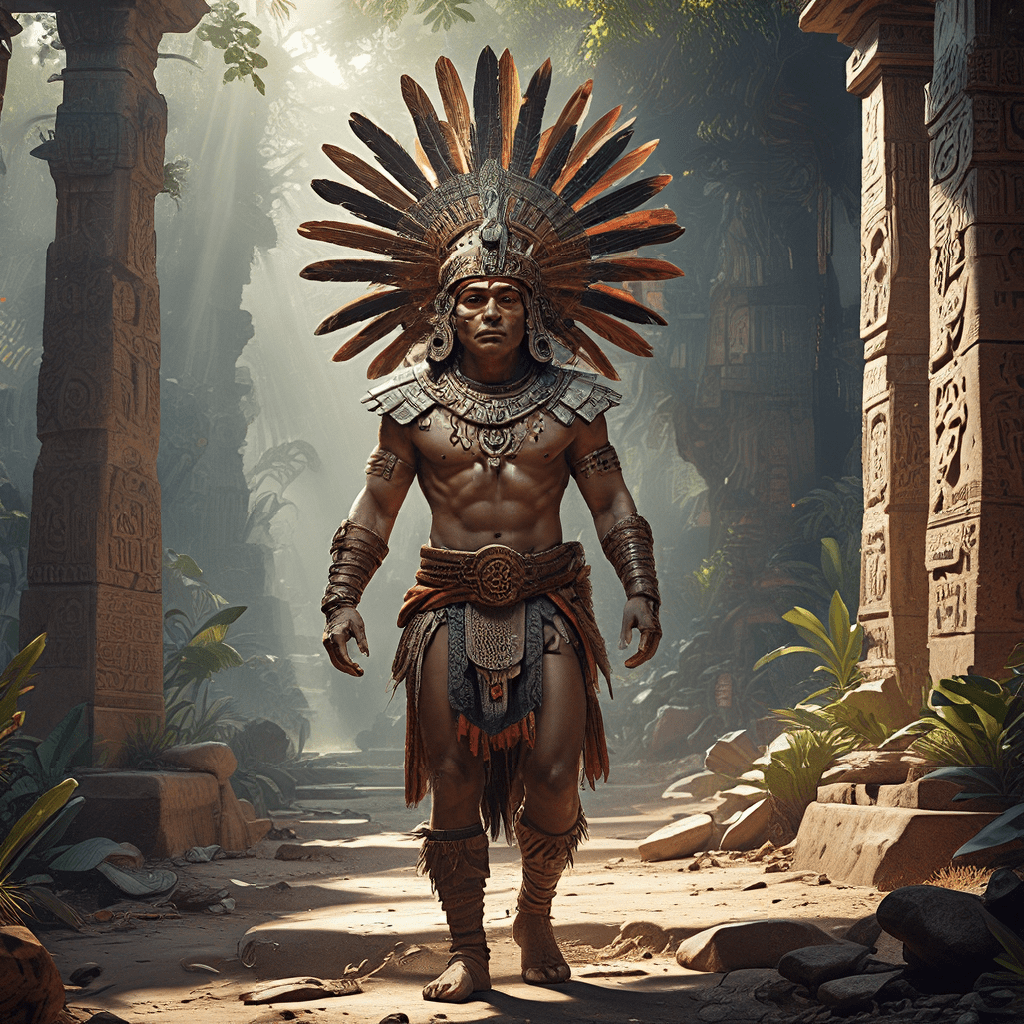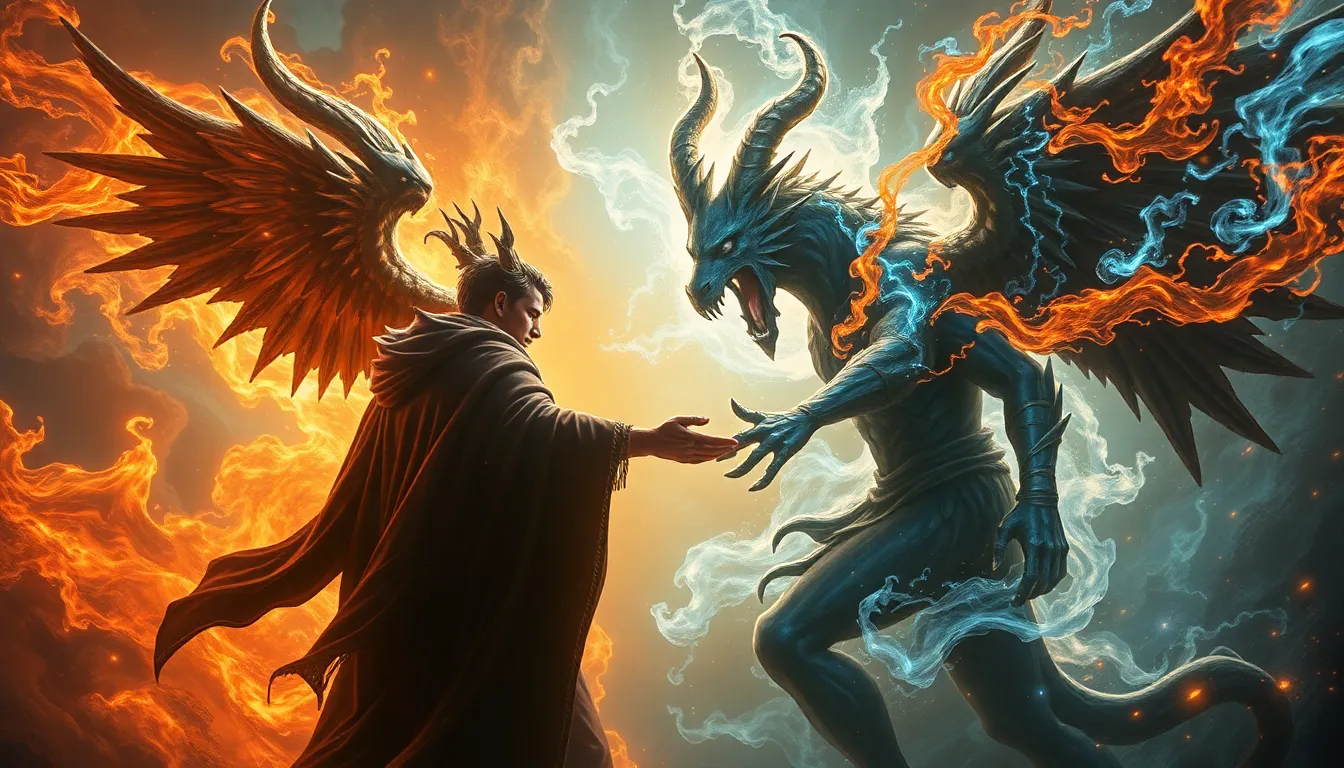Korean Folktales: Unveiling the Truth Behind Mountain Deities
From towering peaks to verdant slopes, mountains hold a special place in the hearts and minds of Koreans. For centuries, these majestic landscapes have been more than just geographical features; they serve as sacred spaces, infused with spiritual significance and deeply intertwined with the rich tapestry of Korean folklore.
The Mountain as a Sacred Space in Korean Culture
In Korean culture, mountains are not merely natural wonders; they are considered sacred spaces, imbued with a profound spiritual energy. Mountains are often seen as the dwelling places of deities, spirits, and ancestors. They are revered as sources of power, wisdom, and protection. This deep-rooted reverence for mountains is reflected in the numerous folktales, myths, and legends that depict them as mystical realms.
The act of climbing a mountain is more than just a physical challenge; it is often viewed as a spiritual journey. Many Koreans believe that ascending a mountain brings one closer to the divine, offering an opportunity for introspection, purification, and communion with the natural world. This belief is deeply ingrained in Korean tradition, reflected in various rituals and ceremonies associated with mountain worship.
The Mountain Deity: Protector, Provider, and Punisher
Central to Korean mountain lore is the concept of the mountain deity, a powerful spirit believed to reside within the mountain itself. These deities are often depicted as benevolent figures, protectors of the land and its inhabitants. They are believed to oversee the natural world, ensuring the fertility of crops, the abundance of wildlife, and the safety of travelers.
However, mountain deities can also be formidable forces, capable of dispensing punishments for disrespect or transgression. They are seen as guardians of the mountain's sanctity, protecting its environment from exploitation and demanding reverence from those who venture into their domain. This duality – protector and punisher – highlights the complex relationship between humans and the mountain deities, underscoring the importance of respecting nature's power and maintaining harmony with the natural world.
Common Traits of Mountain Deities in Korean Folktales
Korean folktales often describe mountain deities with specific characteristics that reflect their unique roles and personalities. Here are some common traits:
- Shapeshifting: Mountain deities are known to change their form, appearing as humans, animals, or even inanimate objects, adding a layer of mystery and intrigue to their nature.
- Guardian Spirits: Mountain deities often act as protectors of the land, ensuring the well-being of their domain and those who respect them.
- Punishers of Transgression: Deities can also be fearsome figures, punishing those who disrespect the mountain or exploit its resources.
- Connection to Nature: Their actions and appearances are often linked to the natural elements, highlighting the interconnectedness between the deities, the mountain, and the world around it.
- Gender Fluidity: Mountain deities can be male, female, or gender-neutral, reflecting the fluidity of nature itself and the multiplicity of spiritual forces.
The Role of Nature in Korean Mythology
The prevalence of mountain deities in Korean folklore underscores the profound connection between humans and nature. Korean mythology is steeped in animism, the belief that all things in nature possess a spirit. This belief is exemplified in the reverence for mountain deities, who are seen as integral parts of the natural world, not separate entities.
Korean folktales often highlight the importance of balance and harmony between humans and nature. Mountain deities serve as a reminder that humans are not above the natural world but are part of a larger ecosystem. The stories offer cautionary tales about the consequences of disrespecting nature, emphasizing the need for reverence and sustainability in our relationship with the environment.
The Mountain Deity as a Symbol of Power and Authority
The existence of mountain deities also speaks to the concept of power and authority within Korean society. These deities, with their vast dominion over the mountains, represent a powerful and enduring force, often reflecting the hierarchy and social structures of human society. They serve as reminders of the power of nature, the inherent authority of the divine, and the importance of maintaining order and balance in the world.
This symbolism further underscores the spiritual significance of mountains in Korean culture, highlighting their role as sources of power, protection, and spiritual guidance. The mountain deities, as embodiments of these qualities, continue to captivate the imagination and inspire awe among Koreans, reminding them of their place within the natural world and the importance of living in harmony with it.
The Relationship Between Humans and Mountain Deities
In Korean folktales, the relationship between humans and mountain deities is complex and multifaceted. It is a relationship built on respect, reverence, and a deep understanding of the power of nature. Humans are seen as guests in the mountain deities' domain, and their well-being depends on maintaining harmony with the natural world.
Stories often depict mountain deities as protectors of the land and its inhabitants, offering guidance, blessings, and aid to those who respect them. However, these deities can also be fierce and unforgiving, punishing those who disrespect their authority or exploit the resources of their domain. The stories serve as cautionary tales, reminding humans about the consequences of their actions and the need to live in balance with the natural world.
The Influence of Shamanism on Mountain Deity Lore
Korean shamanism, a spiritual tradition that has long been intertwined with Korean culture, has had a profound influence on the development of mountain deity lore. Shamans, traditionally viewed as intermediaries between the human and spirit worlds, often act as mediums for communicating with mountain deities. Their rituals and practices, which involve offering sacrifices and performing ceremonies to appease the deities, have been instrumental in shaping how people understand and interact with them.
Shamanism has also contributed to the development of specific beliefs and rituals associated with mountain deities. For example, the practice of "mountain worship," which involves ascending mountains to pay homage to the deities, is often led by shamans who guide followers through rituals and offer prayers for blessings and protection.
The Evolution of Mountain Deity Myths over Time
The beliefs about mountain deities in Korean folklore, like most traditions, have evolved over time, shaped by cultural shifts, historical events, and changing societal values. Early beliefs, deeply rooted in animism, emphasized the deities' role as protectors and providers, reflecting the importance of nature for survival and well-being.
As Korean society became more complex, the stories of mountain deities began to reflect the challenges and concerns of the time. In the face of natural disasters, stories often depicted deities as fierce and unpredictable, punishing human transgressions against nature. However, even during times of hardship, the belief in mountain deities as protectors and sources of strength persisted, offering comfort and hope to those struggling with difficult circumstances.
Theories on the Origin of Mountain Deity Beliefs
Scholars have proposed several theories about the origins of mountain deity beliefs in Korea. Some argue that the belief stems from the veneration of ancestral spirits, who were believed to reside in mountains and protect their descendants. Others suggest that mountain deities emerged from the animistic beliefs of indigenous Korean communities, who revered the spirits of nature and sought to appease them through rituals and offerings.
The geographical landscape of Korea, with its numerous mountains and valleys, also likely played a role in shaping these beliefs. Mountains were a source of awe and mystery, inspiring stories about powerful spirits that inhabited their peaks and slopes.
The Myth of the Mountain Deity: A Reflection of Korean Values and Beliefs
The enduring stories of mountain deities in Korean folklore serve as a powerful reflection of Korean values and beliefs. They highlight the importance of respect for nature, the need for harmony between humans and the natural world, and the belief in the power and interconnectedness of all things.
The mountain deity, as a powerful yet benevolent figure, represents a fundamental aspect of Korean culture, illustrating the deep connection between humans and the environment, and the importance of living in balance with nature's forces. These stories continue to inspire and guide Koreans, reminding them of their responsibility to protect and preserve the environment for future generations.
FAQ:
Q: Are mountain deities still worshipped in Korea?
A: While formal mountain worship is less prevalent than in the past, beliefs in mountain deities remain influential in Korean culture. Many people still respect mountains as sacred spaces and acknowledge the importance of nature.
Q: What are some examples of mountain deity myths in Korean folklore?
**A: ** Some well-known examples include the legend of "Ddeok-baeksan" (Mountain of Rice Cakes), a mountain deity who rewards those who are kind and generous, and the story of "Jiri-san" (Mount Jiri), a mountain deity who protects the land and its people.
Q: What is the significance of the mountain deity in Korean culture today?
A: Even in modern Korea, the mountain deity serves as a reminder of the importance of respecting nature and living in harmony with the environment. They continue to inspire awe and reverence for the natural world.




